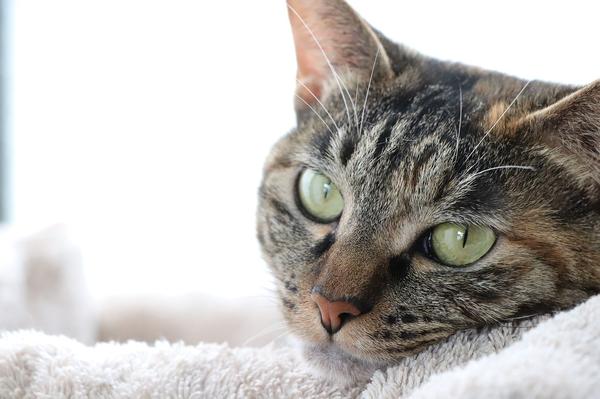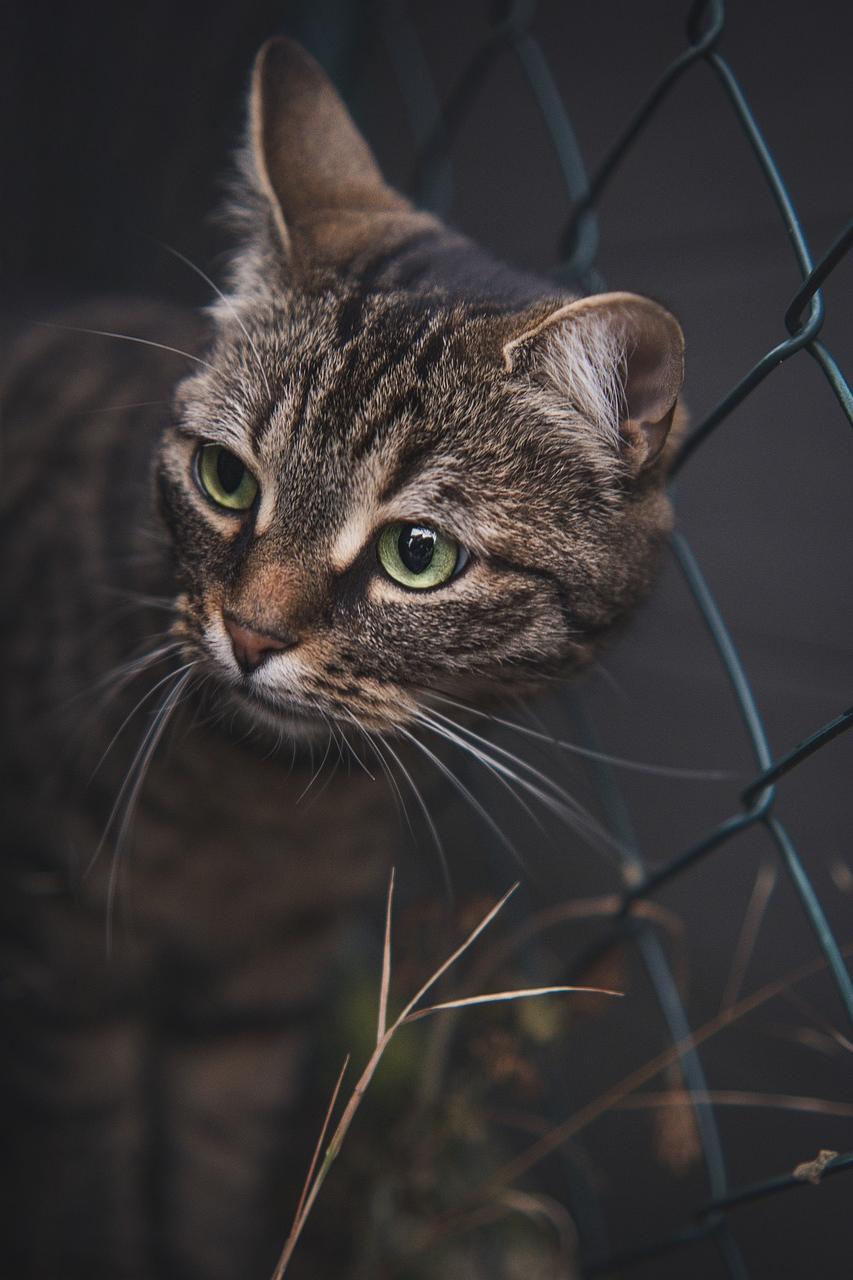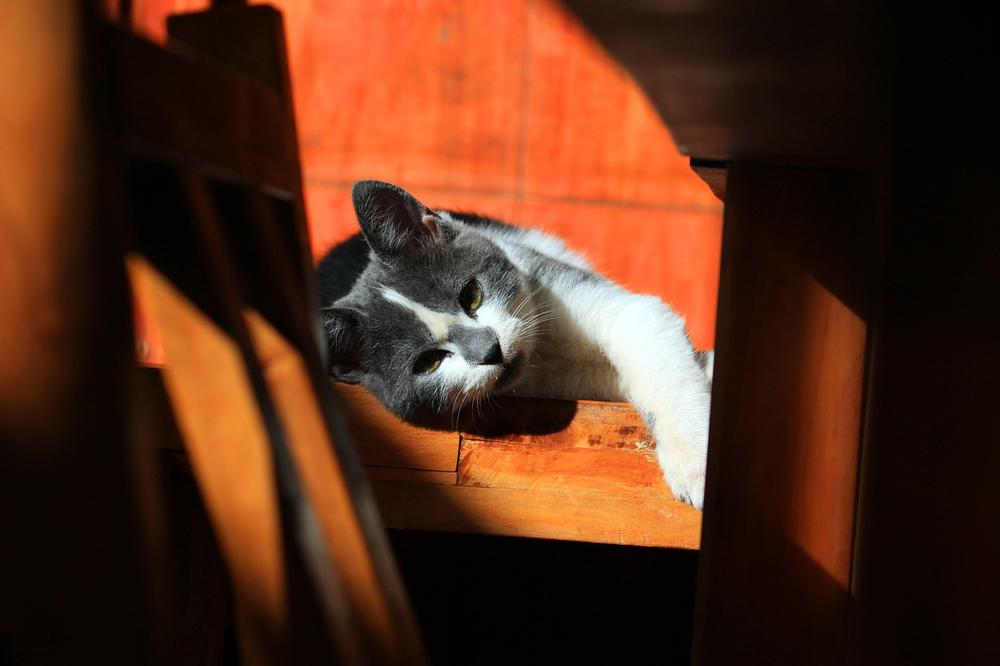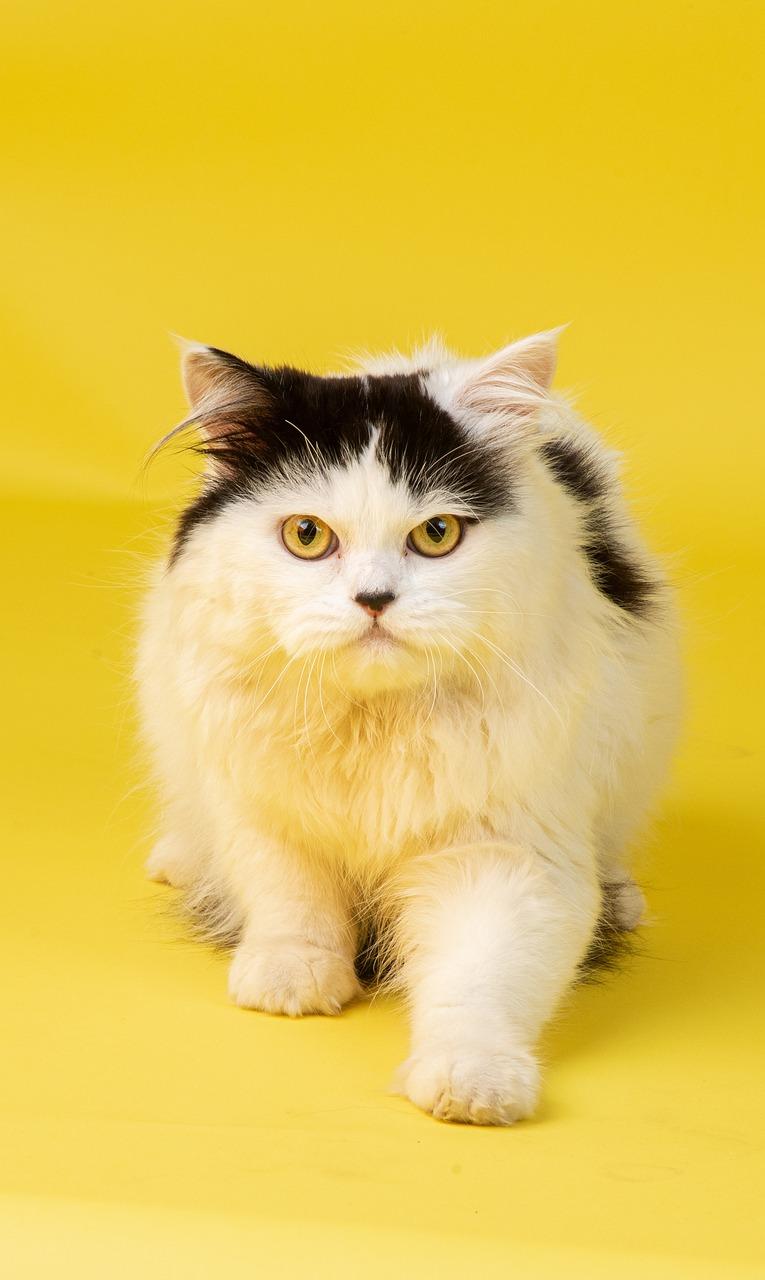Why Is Your Elderly Cat Suddenly Pooping on the Floor?

Tired of finding little "gifts" from your elderly feline friend all over your floors?
I hear you. 🙃
You're probably cursing cats, carpets, and life in general right about now.
But before you throw in the litter box and call it a day, let's dive into the deep, murky waters of why your aged whiskered wonder has suddenly turned your home into a petting zoo.
Buckle up and get ready, because we're about to embark on a journey to uncover the truth.
Let's figure out why Mr. Whiskers is suddenly pooping everywhere, shall we?
Health Issues and Bowel Problems: Identifying Potential Medical Causes for Sudden Floor Pooping in Elderly Cats
If your elderly cat is pooping on the floor, it might be because of health problems.
You should get regular dental checkups for your cat because bad oral health can cause pain while eating or using the litter box, which can lead to floor pooping.
But dental issues aren't the only cause. There are other medical conditions that could contribute to this behavior.
Here are some possible reasons:
- Urinary tract infections: These infections can make your cat uncomfortable and have to urinate a lot, which could result in floor pooping.
- Diabetes: Cats with diabetes might be extra thirsty, pee more than usual, and have changes in their bowel habits, like pooping on the floor.
- Cancer: Tumors or cancerous growths in your cat's gastrointestinal system could mess up their bowel movements.
- Kidney problems: Issues with the kidneys can mess up how your cat's body works, including controlling when they poop.
- Liver disease: liver diseases affect digestion, which can lead to floor pooping.
- Gastrointestinal problems: Conditions like inflammatory bowel disease can cause discomfort and irregular bowel movements.
- Cognitive decline: As cats get older, they might have trouble remembering how to use the litter box properly.
- Hyperthyroidism: When the thyroid glands are too active, it messes up the digestive system.
- Constipation and diarrhea: These digestive problems can make cats avoid the litter box.
- Weak muscles connecting to the urinary tract: If these muscles are weak, your cat can lose control over where and when to poop.
There are also other factors like aging, changes in the house, and litter box issues that might cause floor pooping in elderly cats.
If you notice sudden changes in your cat's pooping habits, you should take them to the vet for a thorough examination and diagnosis.
You have to address any underlying health issues to improve your cat's quality of life. 😺
Main points I'll expand upon further down this article:
- Proper litter box placement and accessibility are crucial for elderly cats.
- Consider your cat's litter preferences, including unscented, finer-grained litter.
- Depth of litter should allow for burying waste, and open litter boxes are preferred.
- Avoid sudden changes in litter box type or location to prevent deterrence.
- Adjustments to litter size and texture can make it more appealing.
- High-sided litter boxes may be challenging for cats with arthritis or sight problems.
- Place litter boxes in easily accessible areas for older cats.
- Provide multiple litter boxes in a multi-cat household.
- Regularly clean the litter box to prevent aversion and encourage use.
- Seek additional support from cat communities or professionals for guidance.
And now, let's discuss some practical solutions that can help address the issue of floor pooping in elderly cats...
Proper Litter Box Placement and Accessibility: Creating an Ideal Environment for Your Elderly Cat
Here's how to make the perfect litter box setup for your old cat:
- Spray some litter attractant on the box to make it more attractive. You want your cat to be drawn to it.
- Consider what kind of litter your cat prefers. Some cats like unscented, fine-grained clumping litter that feels like sand.
- Make sure there's enough litter in the box so your cat can bury its waste. Nobody likes a dirty bathroom, not even a cat.
- Choose an open litter box that's big enough for your cat. Stay away from scented litter and plastic liners, though.
- Don't suddenly change the type or location of the litter box. Cats don't like surprises when it comes to their bathroom.
- Adjust the size and texture of the litter to make it more comfy for your old cat. They deserve the best bathroom experience.
- Make sure the litter box is easily accessible for cats with arthritis or poor eyesight. Put it somewhere they can easily reach.
- If you have multiple cats, give each one their own litter box. And maybe add an extra one just to be safe. Put them in different spots around the house for convenience.
Your senior cat will adore the litter box you design if you adhere to these suggestions.
It'll be comfortable and easy for them to use.
And that's not all I want to share with you! If you're finding that your furry friend is taking their poop out of the litterbox, it can be quite perplexing and leave you feeling frustrated.

But don't worry, I've got you covered.
I wrote a helpful guide called Why Is My Cat Taking Poop Out of the Litterbox that dives into the reasons behind this behavior and provides solutions.
Trust me, you'll find some invaluable insights in there.
Now, let's get back to creating the perfect litter box setup for our beloved senior cats.
Litter Box Cleanliness: The Importance of a Clean Litter Box in Preventing Accidents
Here's what you need to know about keeping your litter box clean:
- Don't use strong-smelling cleaning products around the litter box - they'll just turn your cat away.
- Cats hate dirty litter boxes. You gotta keep them clean, my friend.
- Scoop up the solid waste every day - that's how you keep it odor-free.
- Change the litter once a week, minimum. Gotta maintain that cleanliness, you know?
- When your cat pees outside the box, use enzymatic cleaners to get rid of the smell. We don't want them forming bad habits.
- Check out some additives and opt for odor-free options instead of those scented ones. We want to eliminate odors, after all.
- Once a month, do a deep clean of the whole litter box. You can't skimp on hygiene, my friend.
- If your cat pees somewhere they shouldn't, clean it up with an enzyme cleaner. Their noses are sensitive, so we don't want them coming back to that spot.
Stick to these pointers, and you'll make your cat happy and promote good litter box habits. No more accidents, my friend!
Preventing Accidents: Proactive Measures to Minimize Floor Pooping in Elderly Cats
Creating a soothing environment
You know, dealing with elderly cats pooping on the floor can be quite a challenge. But don't worry, there are things you can do to help.
To promote proper elimination behavior and reduce stress-related accidents, try using pheromone diffusers or calming collars near the litter box. These create a calm environment that can make a big difference.
Seek additional support and advice
Dealing with this issue may feel overwhelming at times, but remember, you're not alone.
Join cat communities or seek professional advice to get the extra support and information you need.
By reaching out, you'll gain valuable insights into addressing this problem and find solutions that work for both you and your feline companion.
Stay patient and redirect
When it comes to floor pooping in elderly cats, patience is key.
You see, this behavior isn't intentional or controllable.

To encourage proper elimination, try placing additional litter boxes in areas where your cat tends to poop.
This helps guide their instincts and reinforce what's desirable.
Also, ensure to provide plenty of playtime, toys, love, and affection for your furry friend.
It reduces their stress levels and encourages them to consistently use the litter box.
With time and consistent effort, you can resolve this issue in a supportive and understanding manner.
But that's not all!
Incorporating canned pumpkin puree into your cat's diet can also help regulate their bowel movements:
Dietary Changes and Digestion: How Diet Impacts Your Cat's Bowel Movements
Adding canned pumpkin puree to your cat's meals can aid with maintaining healthy and regular bowel movements when they are experiencing constipation or diarrhea.
This is particularly important for older cats, as their dietary requirements and hydration levels become even more essential. The fiber content in pumpkin helps to soften stools, making them easier to pass, while also promoting a balanced digestive system. Remember to serve the pumpkin puree in small amounts, gradually introducing it into their diet alongside regular meals.
By incorporating this simple and natural remedy, you can support your furry friend's well-being and ensure their digestive health remains top-notch.
Medication Side Effects: Exploring Potential Medication-Related Factors for Floor Pooping in Elderly Cats
If you suspect that your elderly cat's floor pooping is caused by medication side effects, don't hesitate to consult with your veterinarian. They can help explore alternative medication options or make dose adjustments as needed. Here are some practical tips to bear in mind:
- Provide detailed information: When discussing the issue with your vet, make sure to provide them with specific details about your cat's behavior, including when it started, how often it occurs, and any other symptoms or changes you've noticed.
- Consider stress factors: Sometimes, behaviors like floor pooping can be a response to stress. Share with your vet any recent changes in your cat’s environment, routine, or interactions that could be contributing to their stress levels.
- Ask about different medications: There may be alternative medications available that won’t cause adverse effects like floor pooping. Discuss with your vet if there are any other options worth considering.
- Explore dosage adjustments: In some cases, simply adjusting the dosage of your cat's current medication may alleviate side effects. Your vet can guide you on the appropriate dose modifications.
- Monitor closely: After making changes to your cat's medication or dosage, keep a close eye on their behavior. Note any improvements or new issues that arise, and communicate regularly with your veterinarian.
You have to work closely with your vet to find the best solution for your cat.
By addressing medication-related factors, you can help improve their comfort and overall well-being.
Do NOT Miss Out: Further down the blog post, I'll provide information on introducing litter box alternatives for cats with specific needs or preferences. Keep reading to explore more solutions!
Addressing Territorial Issues: Dealing With Marking Behavior and Floor Pooping in Elderly Cats
Territorial issues in old cats can be a pain, but if you do it right, you can stop them from pooping all over the floor and create a peaceful space for your furry buddy.
Here's a trick:
- Set up different eating spots and put multiple water stations around the house. This way, the cats won't have to compete, stress out, or fight over resources, which can lead to floor-poop disasters.
- Don't forget that other cats in the house affect how your senior cat acts. The presence of neighborhood cats or changes in the household can make them anxious and trigger territorial disputes. And guess what? You'll find their poop on the floor again.
- So, when introducing new additions, take it slow. Make sure the new cat doesn't make the older one jealous or crazy by giving heaps of positive attention to the elder cat during the transition.
- Sharing a litter box with other cats, especially newcomers, is uncomfortable for old cats. They need to feel secure and trust you before feeling comfortable doing their business. Set them up with their own litter boxes to avoid any conflicts.
- Helping senior cats adapt to change and giving them a calm and safe environment are the keys to prevent floor pooping.
In short, deal with territorial problems in old cats by being patient, understanding, and taking action.
But what if your elderly cat is still pooping on the floor despite addressing territorial issues?
Well, here's an important factor to consider...
Feline cognitive decline.
As our beloved companions age, they may experience decreased bowel control and even forget where the litter box is located.
So, how can you tackle this challenge?
Let me share some helpful tips that will surely make a difference for both you and your furry friend!
Behavioral Changes and Cognitive Decline: Understanding How Age-Related Changes Can Affect Your Cat's Bathroom Habits
As your cat gets older, their bathroom habits can change because they're getting old and forgetful. So, it's important for you to understand what's happening so you can help them out.
Here's what you need to keep in mind:
- Watch how they act: Pay attention to any changes in how your cat uses the litter box. Are they having trouble? Do they seem confused or lost? This will help you figure out what to do.
- Make it familiar: Put a few litter boxes around your house in places where your cat usually hangs out. That way, they can find it easily when they need to go.
- Choose the right litter box: Get one with low sides that are easy for your cat to get into and out of. Older cats might have a hard time with high edges or tall boxes.
- Keep it clean: Scoop the litter every day and add new litter regularly. Cats like things to be clean, and if the box is dirty, they won't want to use it.
- Make it easy to reach: If your cat has trouble climbing stairs or getting around certain parts of your home, make sure there's a litter box on each floor or area where they spend time.
Understanding what your cat needs as they get older is important for keeping them happy and comfortable.
By following these tips, you can help them with their bathroom routine and avoid any accidents or problems.
And it gets more interesting...
Have you ever considered that your cat's litter choice may be contributing to their floor-pooping behavior?
Experimenting with different types of litter alternatives might just be the solution you've been looking for.
Keep reading to find out more!
Introducing Litter Box Alternatives: Exploring Options for Cats With Specific Needs or Preferences
You gotta ensure your cat is comfy, so you ought to offer litter box alternatives that cater to their needs.

Finding the perfect match may require some trial and error.
Here are a few tips for you:
- Try using shredded newspaper as an alternative. It's cheap and eco-friendly, but keep in mind it might not be great at controlling odor like other choices.
- Wood pellets could be worth a shot. They soak up moisture well and have a natural smell. Just check that they don't contain any harmful additives.
- Some cats dig the feel of natural grass mats. They give off an outdoor vibe and provide a soft surface. Just remember to clean them regularly.
- Be mindful of the type of litter you choose. Some cats aren't fans of scented stuff, so go for unscented options. That way, you'll prevent unnecessary stress for your furry pal.
- Don't forget about the litter box itself. Cats can have preferences when it comes to size, enclosure, or edge height. Observe their behavior to figure out what they like or dislike.
- If your cat starts pooping on the floor after switching up the litter box, consider going back to the old one. Your cat's comfort should always be your priority.
Finding the right litter solution takes patience and time.
Experimenting with different options will help you address your cat's specific needs and ensure both of you have a pleasant bathroom experience.
And that wraps up today's article.
If you wish to read more of my useful articles, I recommend you check out some of these: Why Does My Cat Wag Her Tail While Purring, Why Does My Cat Like Her Nose Rubbed, and Why Does My Cat Scratch the Floor After Using the Litterbox
Talk soon,
-Sarah Davis